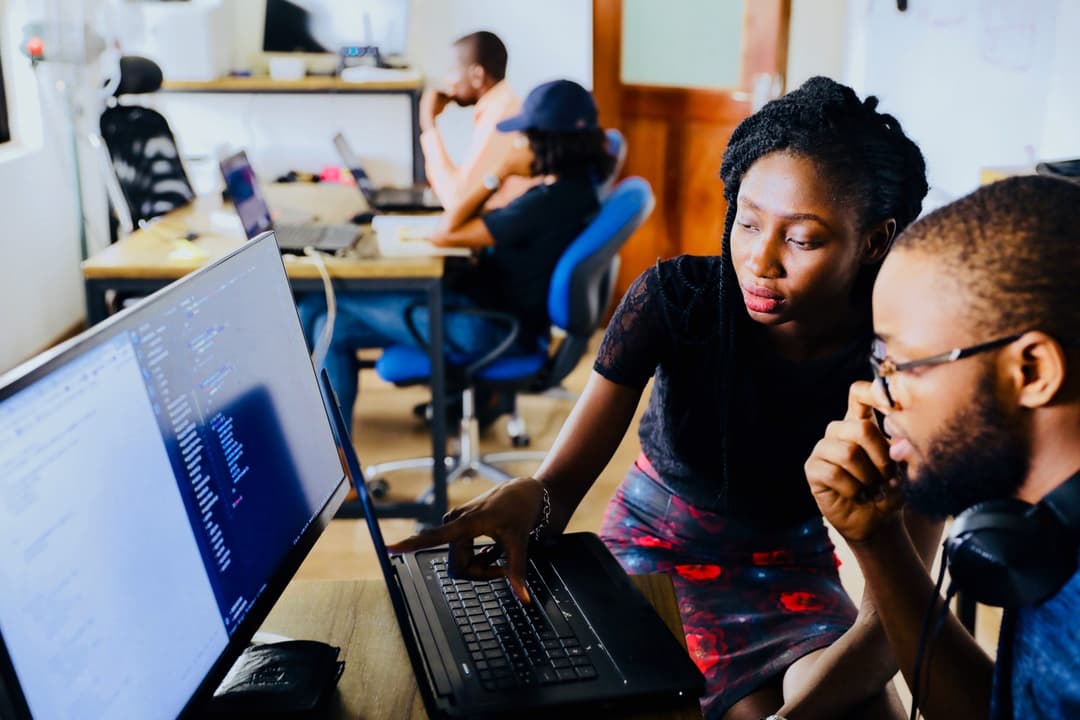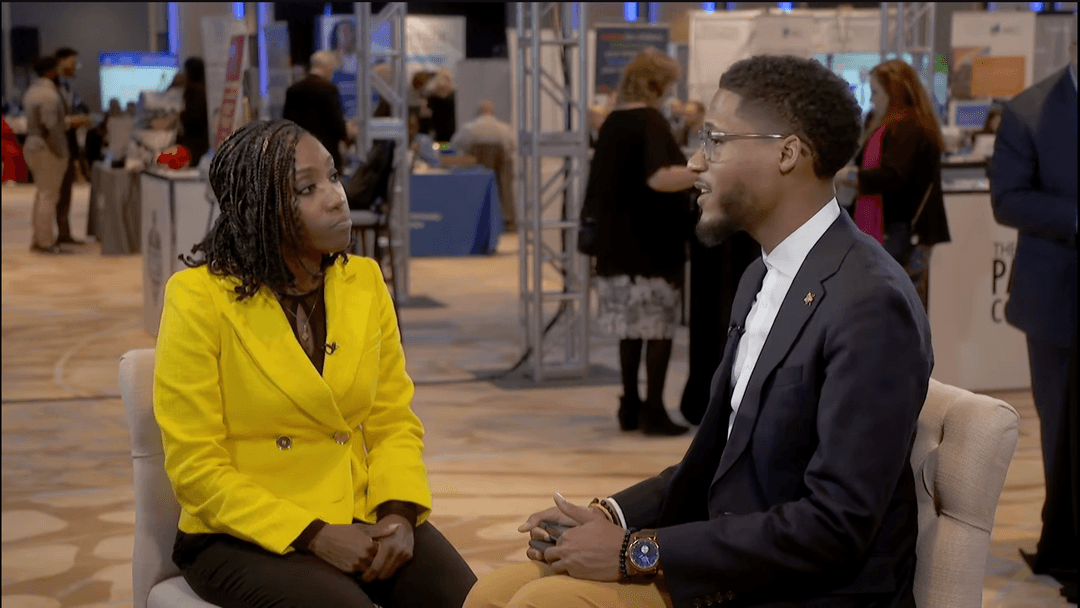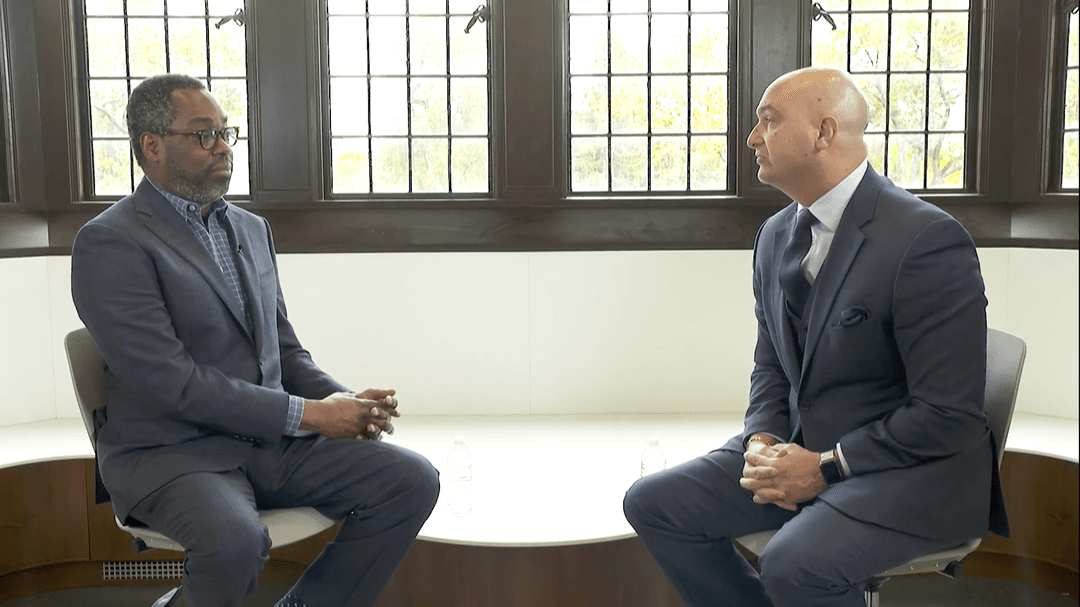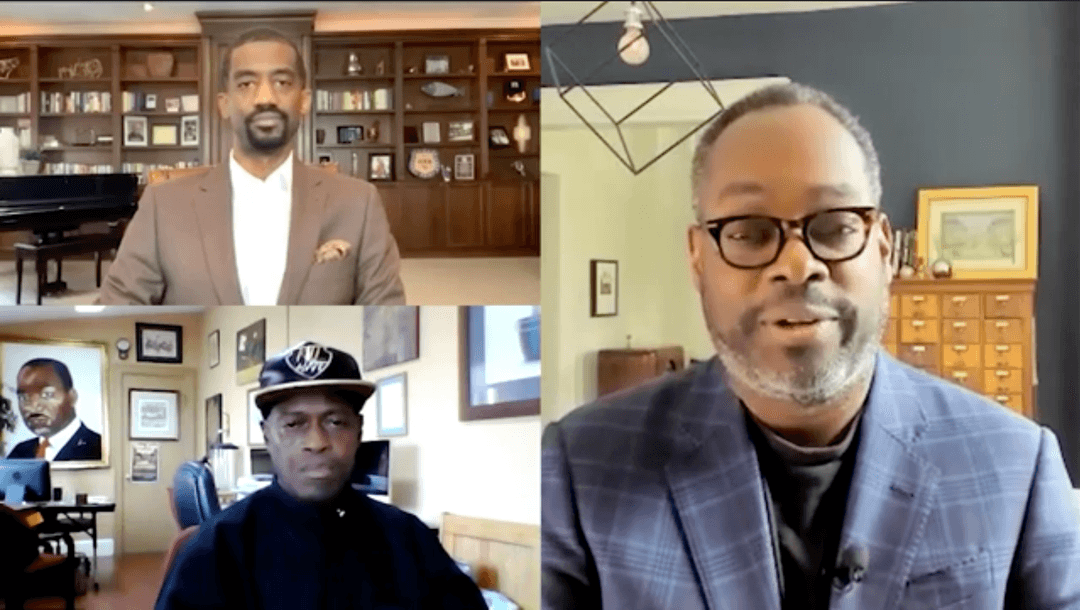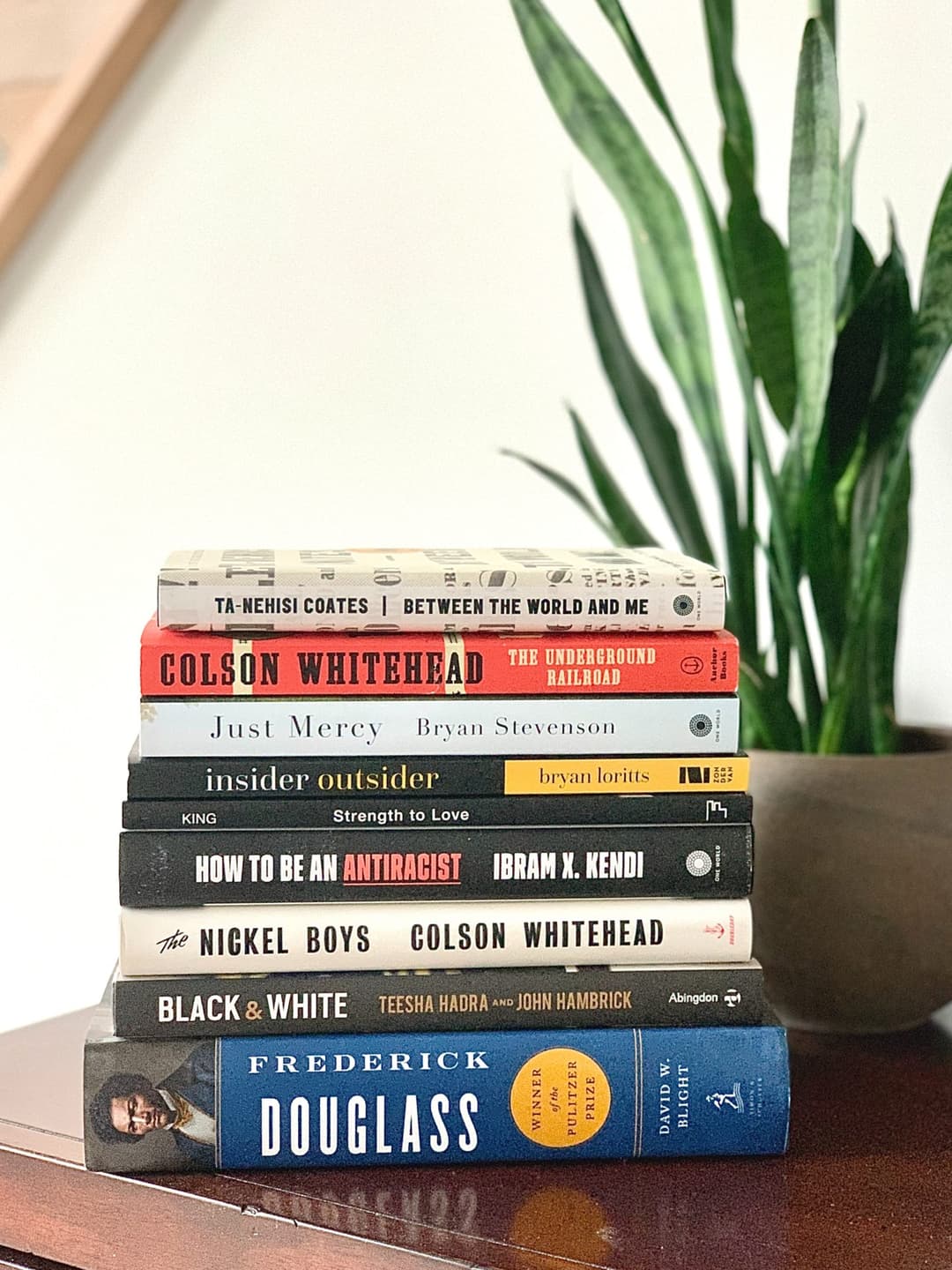Making Black Detroit: The importance of The Divine Nine, Black greek letter organizations
Oct 4, 2022
How has the history of Detroit’s Black Greek letter organizations — The Divine Nine fraternities and sororities — helped to produce a safe, welcoming community for African Americans in Detroit, one of America’s largest majority-Black cities? In conjunction with acclaimed documentarian Henry Louis Gates, Jr.’s new PBS documentary, “Making Black America: Through the Grapevine,” Detroit Public Television and WDET-FM teamed up to host its “Making Black Detroit” town hall with local chapters of The Divine Nine.
RELATED: “Making Black America” Documentary Tells the Story of African American Resilience, Empowerment
“American Black Journal” premieres a portion of the in-person town hall with moderator Mark S. Lee, president and CEO of The Lee Group, and The Divine Nine fraternities and sororities. They talk about the history, contributions and future of Black Greek letter organizations from a local perspective.
Full Transcript:
Mark S. Lee, President & CEO, The Lee Group: Let me just start out with a very general question, discuss, Al, starting with you, the historical context of your organization and how it’s evolved over time.
Al Elvin, Alpha Phi Alpha Fraternity, Incorporated: If you think about the time that our fraternity was founded, which is 1906, Cornell University you got to look at the fact of what the racial climate was at the time. And you had seven gentlemen who were trying to complete their classwork and graduate. And if you— if anyone’s ever been involved in a class that was tough, where you have to work together to try to finish, that’s kind of where we started, where we founded, how we came about. If you look at it from that standpoint, they were all said, look, we need to support each other, and so, we’re going to continue to meet and that’s how this whole thing got started with Alpha Phi Alpha Fraternity, Incorporated.
Katrenia L. Camp, Delta Sigma Theta Sorority, Incorporated: Well, Delta Sigma Theta, let’s just start with Delta. Delta means change and with my organization, we are all about change. We were founded on Howard University’s campus in 1913, and the first public service act we did was the “Women’s Selfish March”, where black women were not even allowed to march; we had to be in the back of the line. But we were diligent, we were not going to be denied and we did our first public service act. So, Delta means change and we will continue to be that light for those that are voiceless and those that do not have the opportunity to stand up for themselves. So, we are all about public service and social justice.
Mark S. Lee: And Michael, let’s talk about the great fraternity of Kappa Alpha Psi.
Michael Kinloch, Kappa Alpha Psi Fraternity, Incorporated: Kappa Alpha Psi is a college fraternity comprised of undergraduates and alumni chapters on major campuses and major cities throughout the country. It was a vision and a dream of our revered founder, Elder Watson Diggs, and 9 others. They came together on a night on January 5th, 1911, on the campus of Indiana University in Bloomington, Indiana, to form this fraternity in which, look, we now– members of the fraternity, I should say, enjoy the fruit of the tree that they planted for us. So we are truly, truly blessed.
Mark S. Lee: Yeah, and let’s look at the challenges going back over 100 years. 100 years ago there were certain challenges about voting and other challenges, how have those challenges evolved to where we are today? So in other words, look at the challenges today and how do organizations really adapt to those changes and challenges that we’re currently confronting?
Al Elvin: Well, for one thing, I’m not sure there’s been that much change. We were certainly working to get people to the polls then, and we’re certainly doing it now. And so, now for different reasons, we have the ability to vote these days, but we’re just not voting. And so, we have worked hard in this fraternity, at least, and I know, let’s just say in general, all the Divine Nine organizations have worked on similar things, too, to register our people to vote, give them the information they need and get them to the polls. It’s quite simple, we’re standing on the shoulders of people who actually died so that we can do that. And so, we are doing our best to continue on that legacy that was set back then. But the challenges are, in some ways, not all that different, especially when you look at the climate right now.
Mark S. Lee: Jump right in, Katrenia, from your perspective.
Katrenia L. Camp: I concur with Alvin. When you think about it, it’s like history is repeating itself. So, you think about what happened with, well, Roe versus Wade, we’re back to that fight again, a woman’s right to choose. So, now that was way back when but to this day, we’re still fighting that same fight along with voter suppression; they’re changing the rules for us to vote. What are the requirements? Registration, and the biggest thing that I think all of us do with the Divine Nine is voter education and that should always be in the forefront.
Mark S. Lee: And Mike, from your perspective, from a Kappa perspective, again, challenges 100 years ago to where we are today, how has it evolved?
Michael Kinloch: Yeah, we’ve made great strides over the years. Nevertheless, what happened then, it’s happening again today as Katrenia said, poverty education, obviously health care, educational needs, those things still exist. So, we definitely need to step up our game to address those. And I must say that earlier this year, the Kappa’s working with the Divine Nine, we partnered up and collaborated and went up to Lansing, Michigan to meet with the legislators to talk about the issues that are common to us and which we really— When we met with the legislative, we focus on voting rights, but then, we had agreed that we would get back together so that we can make sure we get folks out to the polls to vote this November.
Mark S. Lee: One of the founding principles is focus on the community. But we’ve heard and we know, there’s so many challenges confronting the black community today. So from your perspective, Marquis, let’s start with you, what are the top issues that your organization is focusing on right now?
Marquis Sagnia, Omega Psi Phi Fraternity, Incorporated: I think within Omega Psi Phi, we, like many other organizations, want to make the strongest impact with our youth growing up. So in order to do that, we focus on reclamation and retention, retaining our members, reclaiming members that aren’t currently active in order to make a stronger impact on the programming that we have. We have an effort where we call it “Fatherhood and Mentoring,” and that is one of our focused areas where we want to bring along the young men and women in the community, in order to ensure that they have the tools that they need to continue to enhance their lives.
So, overall, just galvanizing our own brotherhood is what we really want to focus on, and we have programs to do that. Each of our chapters throughout the country, internationally, yearly, we focus on bringing members back in, showing them what programs that they can get involved with, and making that greater impact together.
Mark S. Lee: Dr. Robinson, I’m going to ask the same question for the AKAs. Top issues?
Dr. Phyllis E. Robinson, Alpha Kappa Alpha Sorority, Incorporated: Top issues for AKAs, all right. We’re looking for women’s health issues and protecting women from breast cancer. And to do that, we’ve had the mobile unit, mammography unit, that we’ve taken over 150,000 women have benefited from that at no cost to them. We also focus on education and we look at the young children, the middle schoolers, the high schoolers, and, of course, the college graduates.
We have many programs together to help them make that transition to other levels. But in the black community, economic management is a big problem with a lot of our families. So, we have programs to help them become more literate as far as budgeting, financing, accessing funds that they can get. And we help them to make that transition, applying for loans, things like that.
Mark S. Lee: Yeah. Wanted to give you an opportunity to respond to the question.
Lauren Bates, Sigma Gamma Rho Sorority, Incorporated: Well, I think overall, we do have like five programs that we really focus on throughout the year. We just did a march– walk with St. Jude, we have a partnership with them. But one of our biggest things that we’ve been focused on for about the last 10 years or so, is “Project Swim 1922,” which is a partnership with USA Swimming, where we teach young African American kids how to swim by providing them with free swimming lessons so that we can lower the numbers of the accidental death rate by drowning.
Mark S. Lee: When you talk to young people today about fraternities and sororities, what’s important to them? I remember when I was being recruited way back in the day, I knew what was communicated to me. And 43 years later, we still keep in touch. The guys that I crossed with, we still–we do a zoom every Sunday night. But my point is, what are young people, what are expectations? I’ll start with you, Paul, what are expectations? What are they looking for today that makes them connect with the organization?
Paul Nettles, Iota Phi Theta Fraternity, Incorporated: Great question. So what, as a leader, what I’ve seen is a lot of them are looking for a safe space. A lot of them are coming from families that may not be what I grew up in, a two-family household or have brothers and sisters. You have some people looking for outlets. You have some people who are looking for like minds. So, you have those things where the kind of conversation kind of starts. And then, from there, again, it’s just being relevant in the community. Showing them that there are people who are black who are educated, who have two colors and three letters and are still doing things in their community to remain relevant and visible.
Mark S. Lee: And Leslie, as I come back over to you, again, same question about what do young people look for. I know your organizations are reaching out to young people. You’re trying to certainly touch them and feel them, so to speak, what are they looking for?
Leslie Wilson-Smith, Zeta Phi Beta Sorority, Incorporated: From a perspective, I think those young people are looking for inclusion. They want to be included in the organization and feel as if they are welcome. In addition to that, they are also looking for someone that will help them grow and develop and get to the next level of their career as to what they are trying to pursue. So, it’s all about connecting them to resources as you grow and develop them.
In addition to that, with those young people that are coming from homes that have Divine Nine structure exposure in it, they want to be a part of that legacy that lives on. And for those who are not part of a legacy family where they are exposed to Divine Nines and they only know about it when they hit a college campus, then they are looking for, how can I make this work for me? How can I now gain those letters, gain the respect, be a part of the organization, go out and do community service where I feel valued, because that’s what it’s all about, and how am I going to make a difference?
So often we tell young people, “Don’t ask me questions, sit down, stay here, you have learned enough.” I promise you, generation millennials and generation Z, they don’t want to hear that. They want to be given an opportunity where they are challenged and an opportunity where they can show their skills and they can say, I did this. Yes, I align myself with my brothers and sisters of the Divine Nine, but they gave me an opportunity. They gave me a voice, a positive voice.
Stay Connected:
Subscribe to Detroit PBS YouTube Channel & Don’t miss American Black Journal on Tuesday at 7:30 p.m and Sunday at 9:30 a.m. on Detroit PBS, WTVS-Channel 56.
Catch the daily conversations on our website, Facebook, Twitter and Instagram @amblackjournal.
View Past Episodes >
Watch American Black Journal on Tuesday at 7:30 p.m. and Sunday at 9:30 a.m. on Detroit Public TV, WTVS-Channel 56.
Stay Connected
Subscribe to Detroit PBS YouTube Channel & Don’t miss American Black Journal on Tuesday at 7:30 p.m. and Sunday at 9:30 a.m. on Detroit PBS, WTVS-Channel 56.
Catch the daily conversations on our website, Facebook, Twitter, and Instagram @amblackjournal.
Related Posts
Leave a Reply
Your email address will not be published. Required fields are marked*


